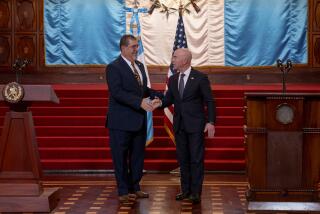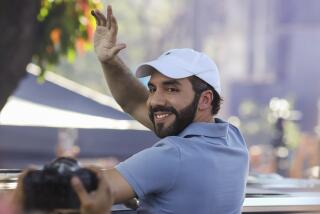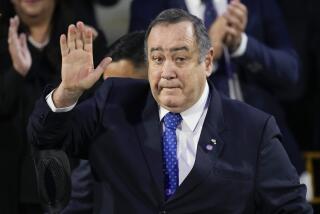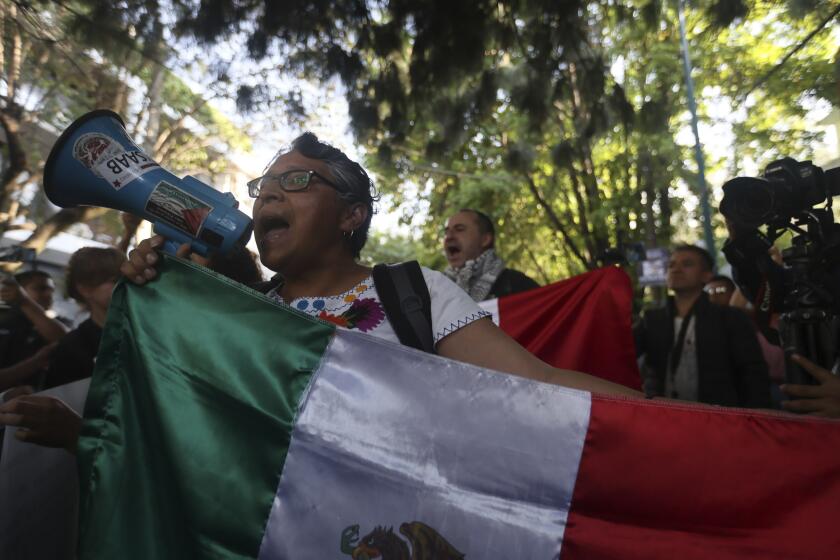Runoff expected in Guatemala race as ex-president waits in a military jail
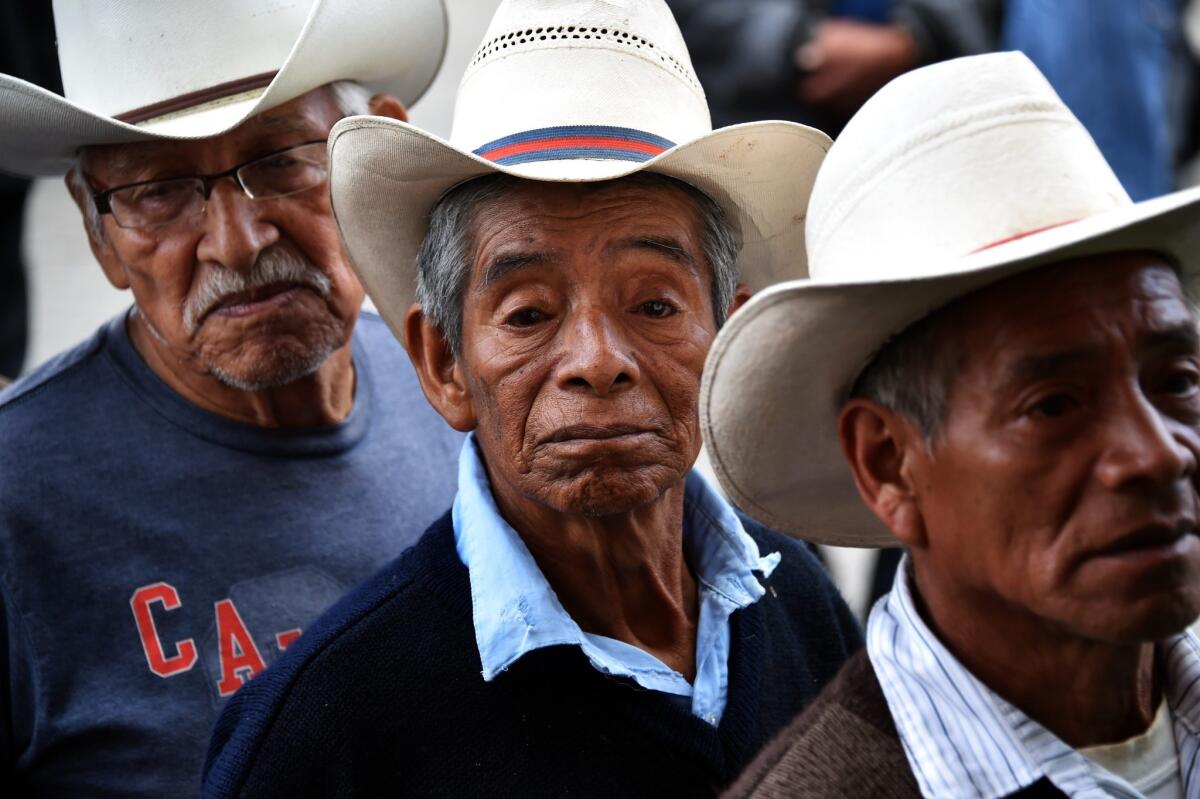
Men line up at a polling station in San Juan Sacatepequez, west of Guatemala City, during Guatemala’s presidential election Sunday.
Guatemalans voted Sunday in an unusual presidential election that came days after the incumbent president resigned and was jailed in a corruption scandal.
Early results were inconclusive, but most pundits expected the election to lead to a runoff among the top finishers next month.
After months of peaceful protest and a week that saw the country plunged into turmoil following the resignation of President Otto Perez Molina, voters were faced with a choice of 14 candidates, most of whom were seen as representing some variant of the status quo.
“There is a lot of skepticism because these parties and candidates don’t represent us. There isn’t much conviction [among voters] — it’s just more of the same,” said Helen Mack, a prominent human rights activist.
Still, voting was fairly heavy: Guatemala’s Electoral Tribunal said that within five hours of the polls opening, more than half of registered voters had cast their ballots.
The election took place despite calls to Guatemala’s electoral authority from the protest movement that the balloting be postponed.
To win outright, a candidate needed to secure 50% of the vote, which wasn’t considered likely in such a large field. On Sunday night, as the votes were being counted, the front-runner was actor Jimmy Morales of the conservative National Convergence Front party. He pulled ahead in the popularity polls last week but has no political experience.
He was followed by wealthy businessman Manuel Baldizon, considered a close ally of the ousted president. Baldizon is with the center-right Renewed Democratic Liberty party, better known by its acronym LIDER, meaning leader in Spanish.
Close behind in third place was Sandra Torres, the ex-wife of former President Alvaro Colom. She is running with the leftist National Unity for Hope party.
Perez Molina, a 64-year-old general who was active during Guatemala’s 36-year civil war, handed his resignation letter to Congress on Thursday after a warrant was issued for his arrest in connection with his alleged involvement in a massive customs tax fraud.
His term was due to end in January and he was not eligible for reelection.
A joint investigation by a dedicated United Nations body called the International Commission Against Impunity in Guatemala and the country’s attorney general’s office discovered and documented the fraud operation, in which officials allegedly received payoffs for cutting import taxes for companies.
The network of corruption went all the way to the top of the political chain, according to the inquiry. Perez Molina, who during court hearings Thursday and Friday protested his innocence and called himself an “honest man,” is in a military jail awaiting a decision on Tuesday on whether he will be formally tried. His former vice president, Roxana Baldetti, is in jail facing charges in the same scandal.
Since the civil war ended in 1996, Guatemala has been beset by corruption, violence and poverty. Protests erupted in April, provoked by the fraud investigation.
But protesters went beyond calling for the resignation of the president. People from all social classes say they are fed up with corruption and the abuse of power across all aspects of Guatemalan life and government.
That anger and frustration mixed with hope and excitement at polling stations Sunday, with some expressing pride at the role of civilian protest in the president’s resignation.
“I didn’t expect that we would achieve all this. To put a corrupt president in prison is incredible,” said Silvia Sanchez, a 42-year-old social worker who was casting a ballot.
Jose Terrace, a 35-year-old student and voter, said: “I think that in the future, Guatemala is going to have a drastic change. It’s a society that is expressing themselves and Guatemalans are thinking of a better future. Guatemalans want to better themselves so we are going to have a different country.”
The two front-runners in Sunday’s election will advance to a second round of voting Oct. 25.
Mack said the protests will continue regardless of the outcome of the election. “The hope we have is that we will see change, the kind of change we’ve been waiting for.”
Special correspondents Brigida and Bonello reported from Guatemala City and Mexico City, respectively.
More to Read
Start your day right
Sign up for Essential California for news, features and recommendations from the L.A. Times and beyond in your inbox six days a week.
You may occasionally receive promotional content from the Los Angeles Times.
